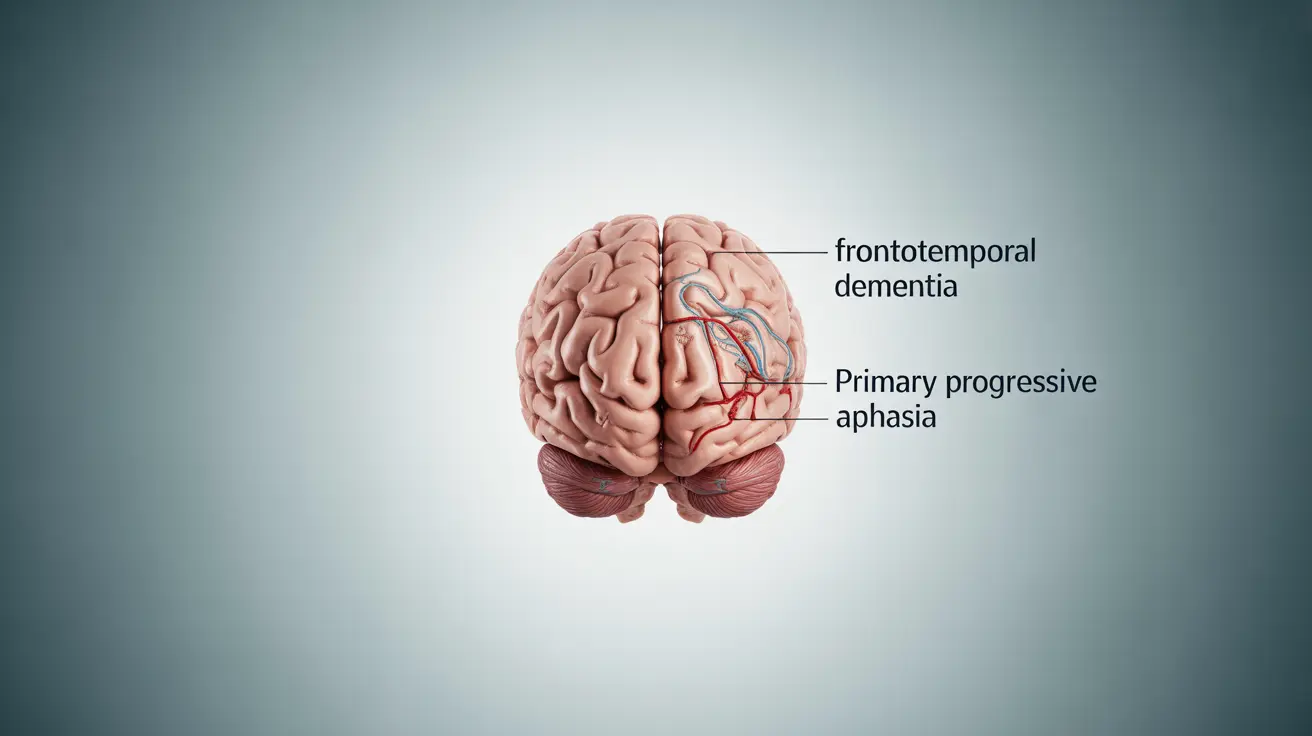Recent public discussions about frontotemporal dementia (FTD) have brought increased attention to this complex neurological condition. As more people seek to understand this form of dementia, it's crucial to examine its distinctive characteristics, available treatments, and support options for both patients and caregivers.
This comprehensive guide will explore the unique features of frontotemporal dementia and primary progressive aphasia (PPA), discussing early warning signs, treatment approaches, and essential support systems for affected individuals and their families.
Understanding Frontotemporal Dementia and Primary Progressive Aphasia
Frontotemporal dementia is a group of brain disorders that primarily affect the frontal and temporal lobes of the brain, which are associated with personality, behavior, and language. Unlike Alzheimer's disease, which typically affects memory first, FTD often begins with changes in personality, behavior, or difficulties with speech and language.
Primary progressive aphasia, a variant of FTD, specifically impacts language skills, making it increasingly difficult for affected individuals to communicate effectively over time.
Key Symptoms and Warning Signs
Behavioral Changes
Early signs of FTD often include:
- Inappropriate social behavior
- Loss of empathy
- Impulsive actions
- Changes in food preferences
- Lack of judgment
- Decreased personal hygiene
Language and Communication Issues
PPA symptoms typically manifest as:
- Difficulty finding the right words
- Problems understanding complex conversations
- Hesitation in speech
- Grammar and pronunciation errors
- Gradual loss of reading or writing abilities
Diagnosis and Treatment Approaches
While there's no single definitive test for FTD, doctors use a combination of methods to reach a diagnosis, including:
- Detailed medical history
- Neurological examinations
- Brain imaging (MRI, CT scans)
- Cognitive and behavioral assessments
- Speech and language evaluations
Current Treatment Options
Treatment focuses on managing symptoms and maintaining quality of life through:
- Speech therapy
- Behavioral management strategies
- Occupational therapy
- Medications for specific symptoms
- Support groups and counseling
Supporting Communication and Daily Living
Caregivers and family members can help manage communication challenges by:
- Maintaining a calm, quiet environment
- Using simple, direct sentences
- Providing visual cues and written information
- Being patient and allowing extra time for responses
- Creating consistent daily routines
Legal and Care Planning Considerations
As FTD progresses, it's essential to address legal and long-term care needs, including:
- Power of attorney arrangements
- Healthcare directives
- Guardian or conservator appointments
- Long-term care planning
- Financial management strategies
Frequently Asked Questions
- What are the early symptoms of frontotemporal dementia and primary progressive aphasia, and how are they different from Alzheimer's disease?
FTD typically begins with personality changes, behavioral issues, or language difficulties, while Alzheimer's usually starts with memory problems. PPA specifically affects language skills first, with symptoms like word-finding difficulties and speech problems. Unlike Alzheimer's, early memory often remains intact in FTD.
- What treatments or therapies are available to help manage speech and communication problems caused by primary progressive aphasia and frontotemporal dementia?
Treatment options include speech therapy, communication aids, behavioral therapy, and medications for specific symptoms. Speech therapists can teach alternative communication strategies, while occupational therapists help maintain daily living skills.
- Can family members or caregivers do anything to help someone with frontotemporal dementia or primary progressive aphasia communicate better at home?
Yes, caregivers can help by simplifying communication, using visual aids, maintaining routines, and creating a calm environment. Written instructions, picture cards, and gesture-based communication can also be effective strategies.
- Is frontotemporal dementia hereditary, and how do doctors diagnose it since clear tests are not available?
About 40% of FTD cases have a genetic component. Diagnosis involves a comprehensive evaluation including medical history, neurological exams, brain imaging, and cognitive assessments. While no single test confirms FTD, this combination of assessments helps doctors make an accurate diagnosis.
- What are the options for legal and caregiving support for people with progressive dementia like Wendy Williams, and how does guardianship work in these cases?
Legal options include power of attorney, healthcare directives, and guardianship arrangements. Guardianship may be necessary when individuals can no longer make informed decisions about their care or finances. Support services include in-home care, adult day programs, and residential facilities.




